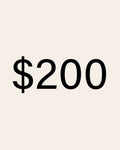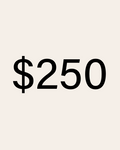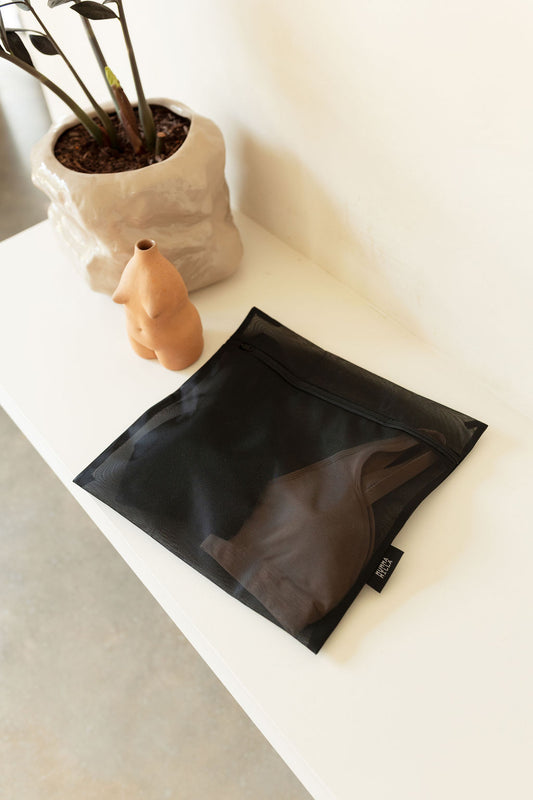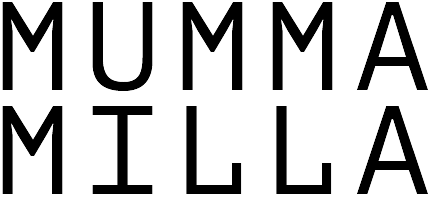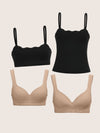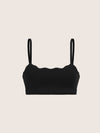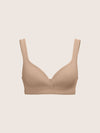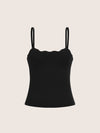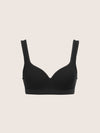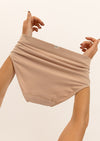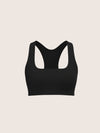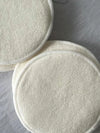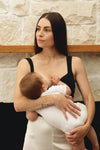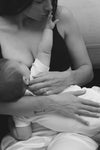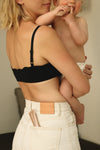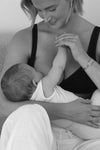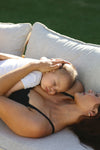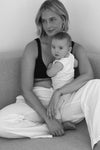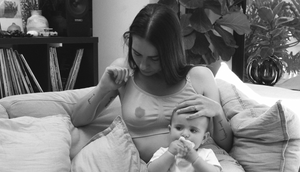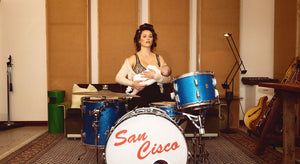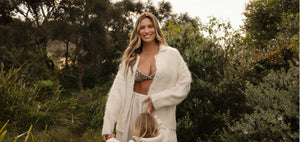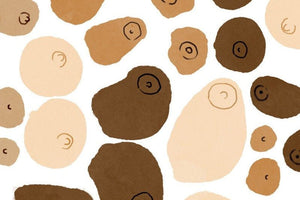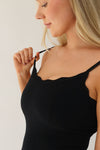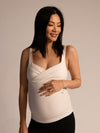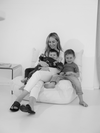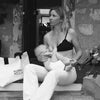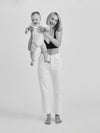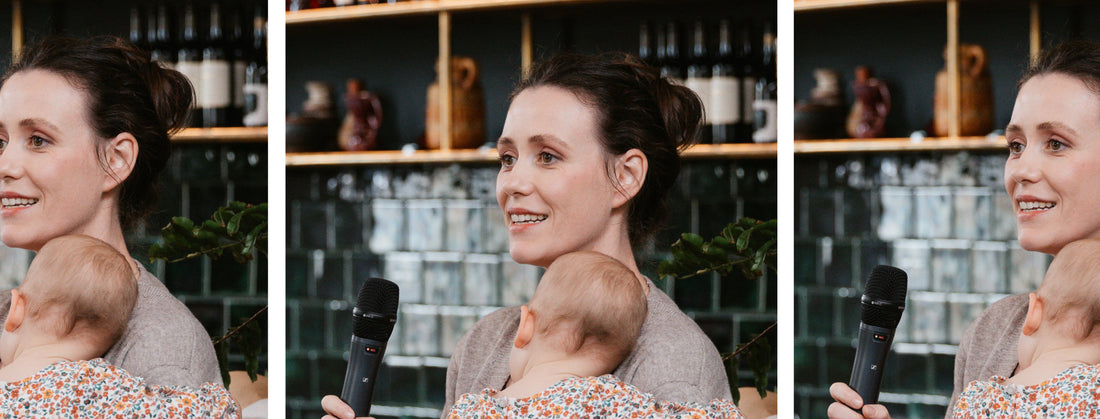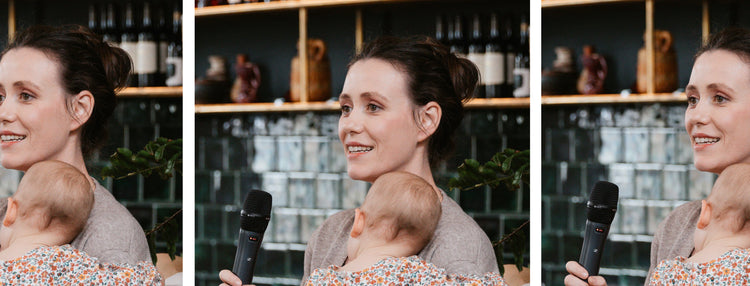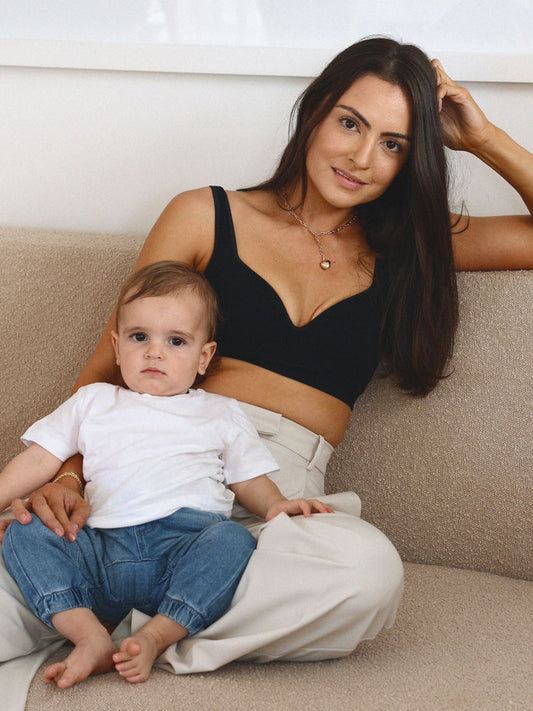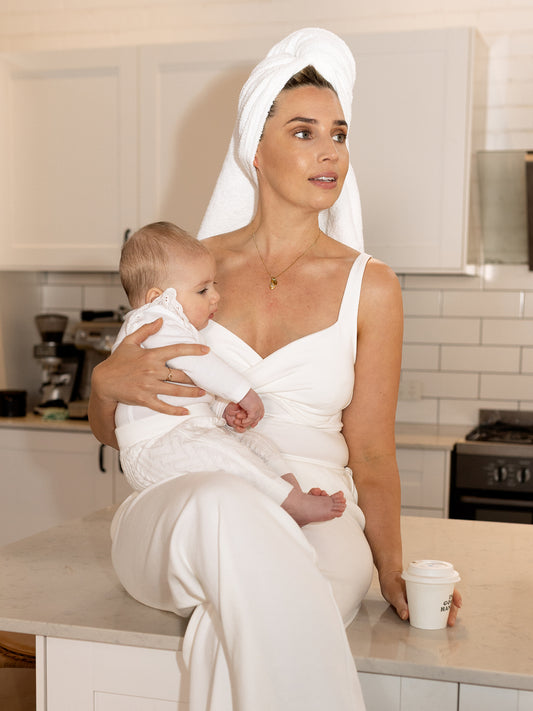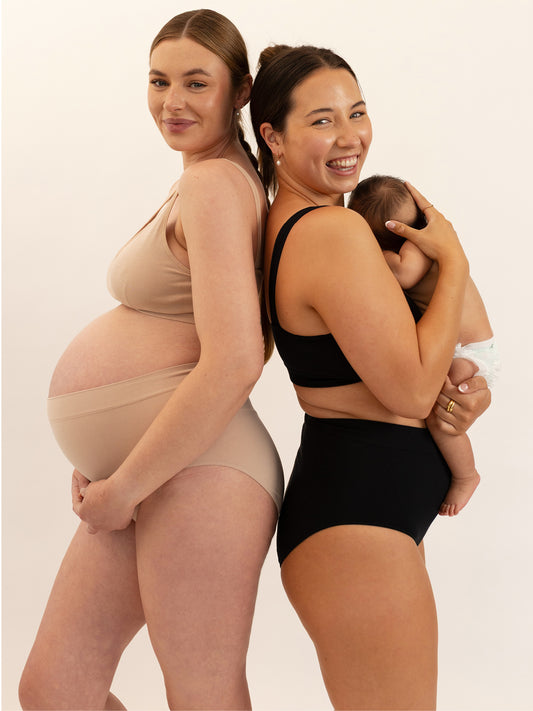With nearly 20 years experience working in NICU and Special Care Nurseries in Victoria and Lactation Consulting, we're thrilled to have Bonnie talk to us at M. Magazine about breastfeeding, bonding, motherhood and everything in between.
Bonnie is a Neonatal and NICU nurse and International Board Certified Lactation Consultant (IBCLC) who provides breastfeeding support to both mothers and babies.
Bonnie is specialised in caring for vulnerable, premature babies and mothers on this journey into parenthood. Dedicated to providing individualised care, educating, empowering and holding the hand of the birth parent during a rollercoaster of emotions and situations.

Can you tell us a little bit about yourself?
My name is Bonnie I reside in Victoria as a mum of two little ones I am an IBCLC or Internationally certified Lactation Consultant and a Registered Clinical Nurse Specialist.
I have over 20 years of experience specifically in the NICU and Special Care Nursery units. My passion is supporting mothers to achieve their goals with breastfeeding their baby. I have a private business on Instagram for which I service Melbourne and Northern Victoria.
I also have @mammasherelactation where I offer private in home or in hospital support Antenatal Lactation Education and postnatal home/hospital visits in Melbourne and Northern Victoria as well as follow up care.
I also work in the community and hospital.
I love being in nature and hiking is my happy place.
What is it like working in the Neonatal Units with newborns and mum's that may not get those initial moments together. How are they supported during this period?
It’s a very emotionally labile space. Its high pressure and unpredictable. Newborns and so fragile yet so resilient. You hold space for new families at the most vulnerable time of their life.
Enabling a mother the opportunity for skin to skin is heartwarming. Supporting a mother to express and be supported by an IBCLC or experienced bed side nurse on her journey when her baby cannot feed at the breast can help her achieve chosen feeding preference.
Breastfeeding, especially for first time mothers can be such a varied experience. What are your tips for mums who have just given birth and your advice on what can be helpful for those very first breastfeeding moments?
Allowing skin to skin uninterrupted after her baby is born gives the baby the opportunity for a breast crawl. This first hour or so is when the oxytocin level is highest and if baby can do a breast feed she can really set up positive path for the breastfeeding trajectory.
Giving the mother the power to voice her needs of this time which can be more than an hour can be really important.
Not only for their baby, but her uterus contracting, reducing post-partum blood loss as well. It’s a very special time.

How often should a newborn be feeding from mum?
After birth and the first feed, baby may be sleepy and rest for several hours.
After baby wakes, it is important to feed her on demand and to her baby’s feeding cues. 8-12 times or so in 24 hrs.
Some advice on what a mother can do to prevent mastitis?
Feed your baby on demand with good position and attachment with an audible milk transfer.
Please don’t over use a pump, rest and ensure good nutrition.
Avoid aggressive massage and heat to the breast.
See an IBCLC for support.
Social Media shows mum's fridges full of expressed breastmilk.
Is expressing fully necessary as a breastfeeding mum, and what are your thoughts on stash-your-freezer mentality?
This is a real sore spot for me. These images are not the norm and they really put fear and anxiety into the mind of new mothers.
We absolutely don’t need a ‘stash’. Mothers usually only need to focus on feeding their baby at the breast. On the other hand if they have a sick baby or premature baby who cannot feed, then a stash may be inevitable.
If you are away from your baby or returning to work it may be best to see an IBCLC to discuss your unique situation. I only ever had a few bottles on breastmilk in the freezer once I retuned to work. I never had a stash :)

Your tips on what a mother should be eating postpartum to replenish after giving birth, and help with milk supply?
A well rounded diet 500 extra calories is expected for establishing and maintaining a good supply of milk. There is limited evidence to “lactation biscuits and drinks’ to help increase supply. So rather than spend money on these items, ensure you have a freezer full of nutrient dense slow cooked meals or soups.
Then aim for quick grab foods in the fridge say slices of quiche, and protein balls or healthy biscuits to help you hunger in those early weeks and months.
Seeing a Dietitian is a good option to help boost your knowledge @coeliac.dietitian.andrea has some great resources.
Your advice on how to ease a mother's mind if she is worried her baby is not getting enough milk?
I always advise mothers to book in with me antenatally and be empowered with lactation education BEFORE they give birth. This give the understanding about what is normal and what is not. Ensuring a good position and attachment and audible milk transfer along with wet nappies are often good indicators that all is generally ok.
Breastfeeding positions. What do you recommend?
This is a personal choice and the mum will find her groove.
The reclined or otherwise known as 'biological nurturing', laid back positions are the optimal immediately post birth and allow baby to self latch and obtain a deep latch. Most women find this a great position ongoing.
Feeding your baby to sleep is ....
Actually OK! You are not creating a bad habit, just responding to your baby’s innate needs.
There are so many resources/ articles/ products / blogs out there these days and it may be so confusing what to trust and take on. What would you suggest is the first port of call if a mother is needing some help with breastfeeding?
An Internationally Board Certified Lactation Consultant to provide continuity of care and evidence based care like myself will be your best bet you can find them on the LCANZ website. Secondary to that I recommend the ABA - Australian Breastfeeding Association or search GP who is an IBCLC as well.

The importance of wearing a comfortable, non-restrictive nursing bra especially when milk comes in?
Breast size can change dramatically, its important to not restrict the breast in anyway so to avoid complications like mastitis. A wire free bra which is accessable to your baby will allow ease latch and transfer milk.

We'd love to hear your thoughts on our leakproof options for mums?
Using a leakproof bra or camisole can be helpful ad is washable. In the first 6 weeks especially, milk supply I still being established. Let downs and supply may be plentiful, so these can be accompanied with extra pads if necessary.
A leakproof bra or camisole can help eliminate the stress of waking up soaked in the night or when you are out and about. No fussing with a soggy pad, that is not the best for the environment as well.
The importance of looking after nipple health.
At MUMMA MILLA we always recommend for mums to change saturated bras wear silicone milk collectors / extra pads for heavy letdowns, especially during those first few postpartum weeks.
Agree with this. Avoid nipple being too wet. Allow Breastmilk to nipple after a feed to help the immunoglobins present in the milk to support healing of microtears in the nipple in the early days.
Also, more than 30 secs of nipple discomfort at the start of a feed is not normal, see an IBCLC for support with this or your IBCLC/GP.
If you could describe breastfeeding in one word ......
Transformative.
Your advice for mums who would like to venture down the breastfeeding journey?
Its valuable to employ an IBCLC early on in your journey. Antenatal Education is my top tip to help create knowledge and power in yourself.
Create a feeding preference and become empowered with reputable resources.
Having a support person who knows your wishes and has a little understanding of what breastfeeding actual entails time wise and emotionally wise is proven to have better breastfeeding outcomes.
The benefits to a mothers health and her baby are immeasurable. The bond and connection with your baby to breastfeed in any capacity is also immeasurable.
I applaud all mothers for feeding their baby, the unique journey that is a dance between you and your child!
See more tips and conversations with Bonnie here @mammasherelactation
